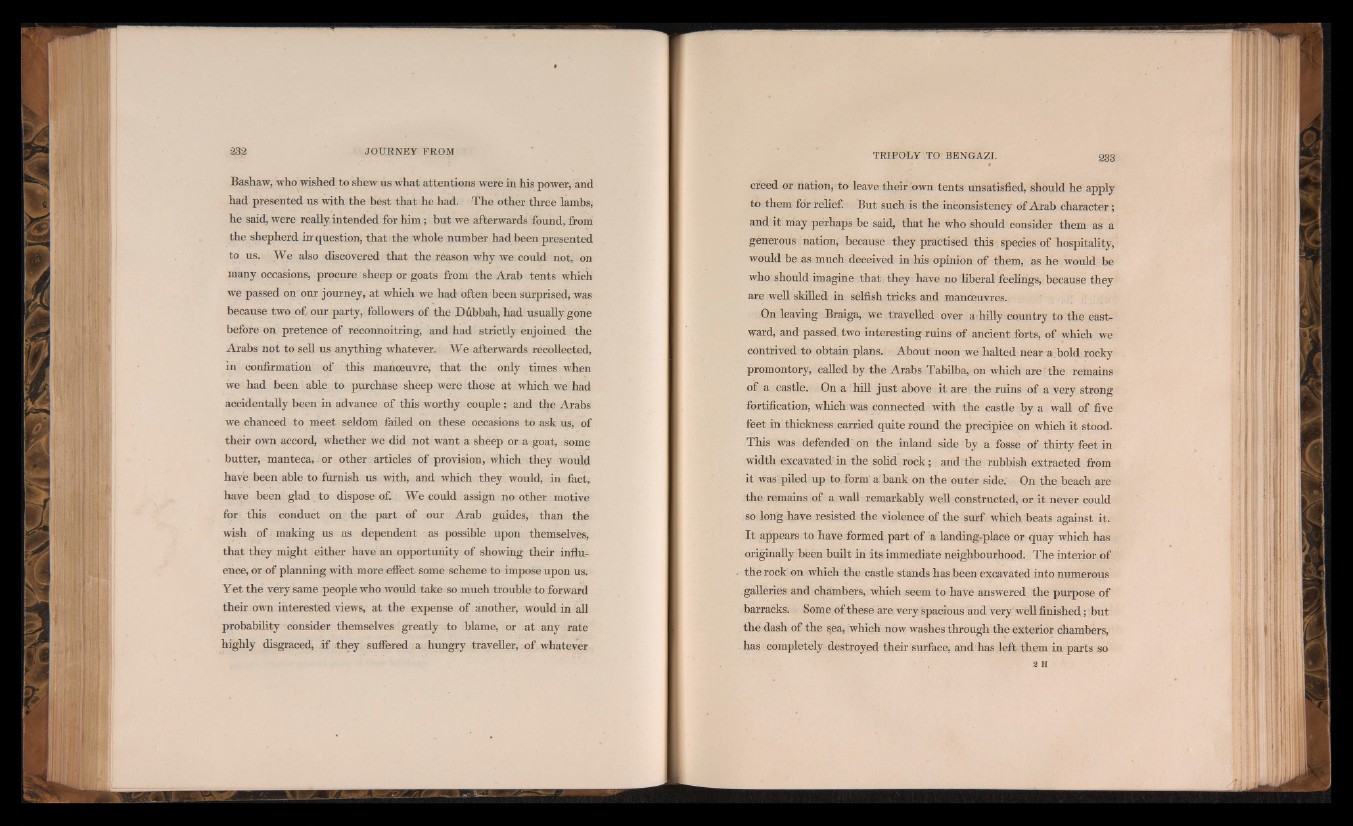
Bashaw, who wished to shew us what attentions were in his power, and
had presented us with the best that he had. The other three lambs,
he said, were really intended for him; but we afterwards found, from
the shepherd in'question, that the whole number had been presented
to us. We also discovered that the reason why we could not, on
many occasions, procure sheep or goats from the Arab tents which
we passed on onr journey, at which we had often been surprised, was
because two of, our party, followers of the Dubbah, had usually gone
before on pretence of reconnoitring, and had strictly enjoined the
Arabs not to sell us anything whatever. We afterwards recollected,
in confirmation of this manoeuvre, that the only times when
we had been able to purchase sheep were those at which we had
accidentally been in advance of this worthy couple; and the Arabs
we chanced to meet seldom failed on these occasions to ask us, of
their own accord, whether we did not want a sheep or a goat, some
butter, manteca, or other articles of provision, which they would
have been able to furnish us with, and which they would, in fact,
have been glad to dispose of. We could assign no other motive
for this conduct on the part of our Arab guides, than the
wish of making us as dependent as possible upon themselves,
that they might either have an opportunity of showing their influence,
or of planning with more effect some scheme to impose upon us.
Yet the very same people who would take so much trouble to forward
their own interested views, at the expense of another, would in all
probability consider themselves greatly to blame, or at any rate
highly disgraced, if they suffered a hungry traveller, of whatever
creed or nation, to leave their own tents unsatisfied, should he apply
to them for relief. But such is the inconsistency of Arab character ;
and it may perhaps be said, that he who should consider them as a
generous nation, because they practised this species of hospitality,
would be as much deceived in his opinion of them, as he would be
who should imagine that they have no liberal feehngs, because they
are well skilled in sèlfish tricks and manoeuvres.
On leaving Braiga, we travelled over a.hilly country to the eastward,
and passed, two interesting ruins of ancient forts, of which we
contrived to obtain plans. About noon we halted near a bold rocky
promontory, called by the Arabs Tabilba, on which are the remains
of a castle. On a hill just above it are the ruins of a very strong
fortification, which was connected with the castle by a wall of five
feet in thickness carried quite round the precipice on which it stood.
This was defended on the inland side by a fosse of thirty feet in
width excavated in the solid rock; and the rubbish extracted from
it was piled up to form a bank on the outer side. On the beach are
the remains of a wall remarkably well constructed, or it never could
so long have resisted the violence of the surf which beats against it.
I t appears to have formed part of a landing-place or quay which has
originally been built in its immediate neighbourhood. The interior of
the rock on which the castle stands has been excavated into numerous
galleries and chambers, which seem to have answered the purpose of
barracks. Some of these are very spacious and very well finished ; but
the dash of the sea, which now washes through the exterior chambers,
has completely destroyed their surface, and has left them in parts so
» h